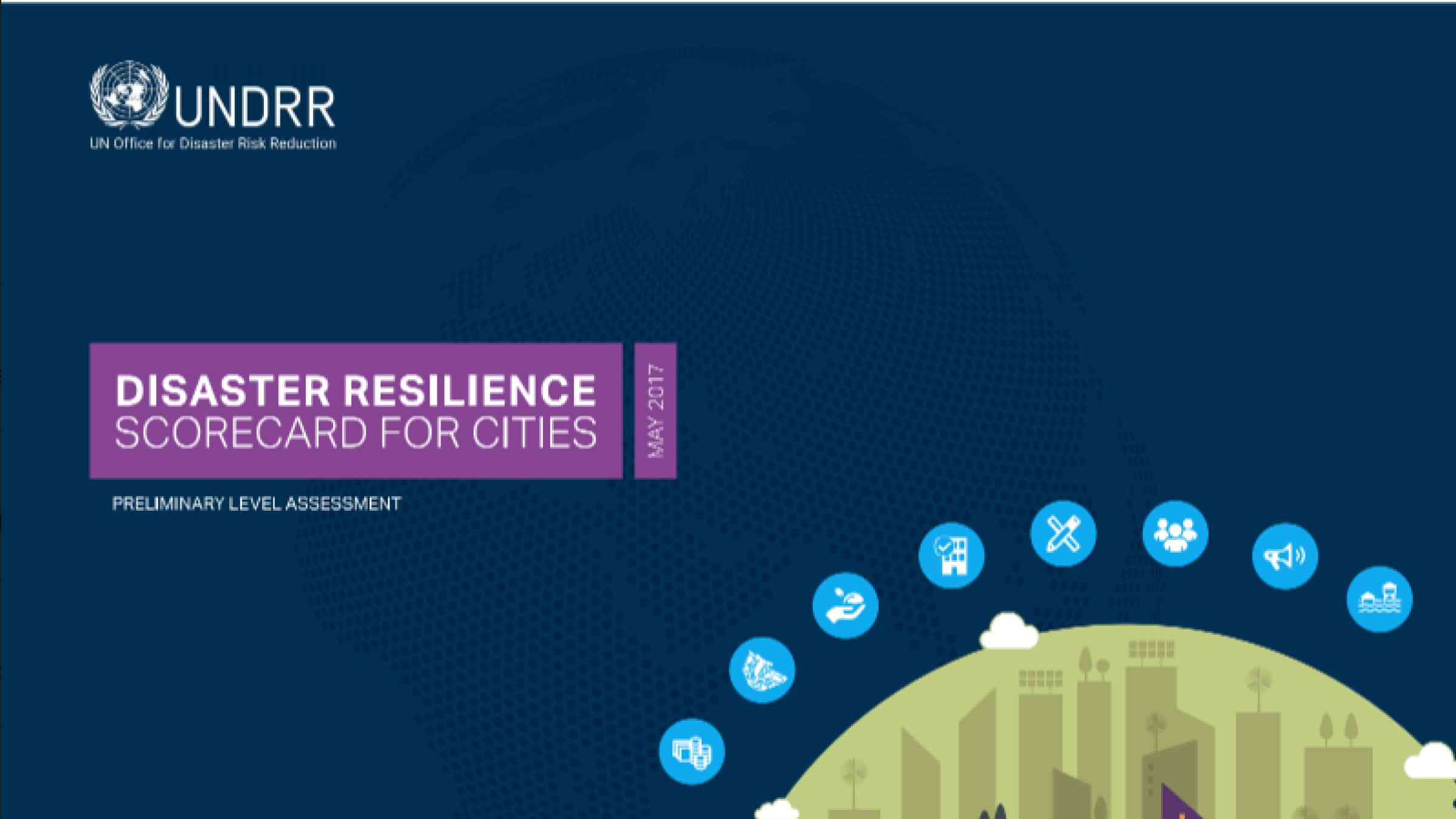Ashgabat, Turkmenistan, steps up in building resilience, with support from UNDRR and the EU.

ASHGABAT– On 28 May, a workshop presenting the Preliminary Disaster Resilience Scorecard for Cities took place in Ashgabat, Turkmenistan. The workshop brought together representatives of the Ashgabat Mayor’s Office, relevant government ministries as well as risk analysis institutions. It marked the beginning of the process of developing the local strategy for strengthening resilience to disasters of Ashgabat through the application of the tools developed by the United Nations Office for Disaster Risk Reduction (UNDRR).
The Disaster Resilience Scorecards for Cities are currently used by around 200 cities around the world. The tool is designed to enable the development of local resilience action plans and to assist countries and local governments in monitoring and reviewing progress in the implementation of the Sendai Framework for Disaster Risk Reduction 2015-2030. As urbanisation is taking place at an unprecedented rate with more than 50% of the world’s population currently living in urban areas, building resilience and adapting to climate change is crucial for cities
Ashgabat is one of the first cities in Central Asia to begin the Disaster Resilience Scorecard assessment. This workshop was part of the Strengthening disaster resilience and accelerating implementation of the Sendai Framework for Disaster Risk Reduction in Central Asia initiative, implemented by UNDRR with funding from the European Union.
Mr. Begench Rejepov, Senior Specialist at the International Cooperation Unit, Ministry of Defense of Turkmenistan highlighted: “In recent years, Turkmenistan has prioritized the transition from the management of disasters to management of risks”.
Mr. Arslan Amangeldiyev, Chief Engineer of the Architectural Department, Ashgabat Mayor’s Office also noted: “On May 25th, Ashgabat celebrated its 140 years anniversary and the local administration is actively working to improve the resilience of our city to disasters. Disaster risk reduction (DRR) is a long-term process with its own characteristics, which is an important part of the socio-economic process.”
Mr. Andrew Bower, Programme Management Officer, UNDRR Regional Office for Europe and Central Asia said, “We appreciate the local administration’s significant role in guiding, facilitating, and monitoring the implementation of national DRR commitments at the local level, and cooperation in upcoming initiatives such as the disaster resilience assessment of the capital city”.
The participants of the workshop received guidance on using the Preliminary Disaster Resilience Scorecard for Cities and were briefed on the global initiative Making Cities Resilient 2030 (MCR2030). At the workshop, urban risk concepts, approaches to building local resilience, and different MCR2030 tools were also discussed.
Background information
The EU-funded project “Strengthening disaster resilience and accelerating the implementation of Sendai Framework for Disaster Risk Reduction in Central Asia”, implemented by the United Nations Office for Disaster Risk Reduction (UNDRR), aims to support countries of the region in implementing the Sendai Framework priorities. The project supports strengthening regional coordination, development of regional DRR strategy, national disaster loss accounting systems, and community-level disaster risk reduction. On the local level, the project supports the development of disaster resilience strategies of capital cities. For this project, the EU committed EUR 3,750,000 for the three-year implementation.
MCR2030 is a global partnership of key partners with expertise and networks across urban resilience, DRR, climate change, and the Sustainable Development Goals to bring synergized collaboration. The initiative seeks to provide guidance and support to enhance understanding of risk reduction and resilience, to improve strategic planning and build resilience, as well as to take actions. It supports, connects, and facilitates resilience-building, offering a range of tools and services including peer-learning and knowledge exchange amongst cities.
For additional information please contact
Ms. Yerkezhan Amriyeva, Communications specialist, EU Delegation to Kazakhstan, at: yerkezhan.amriyeva@eeas.europa.eu
Mr. Abdurahim Muhidov, UNDRR Regional Programme Coordinator, at: muhidov@un.org
Explore further
Is this page useful?
Yes No Report an issue on this pageThank you. If you have 2 minutes, we would benefit from additional feedback (link opens in a new window).